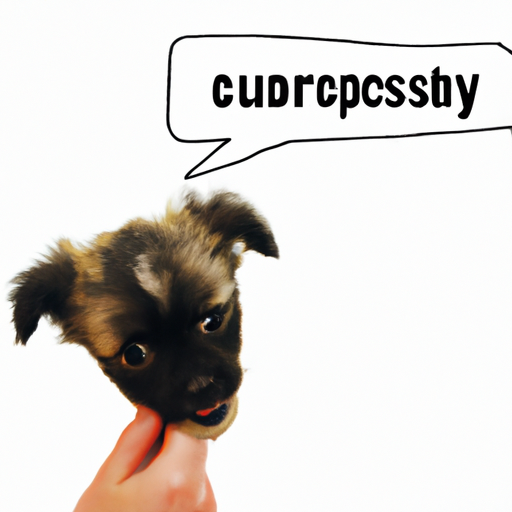Understanding the Behavior
As a caregiver to your furry friend, you’ve probably noticed their tendency to playfully nip or bite. This behavior is often seen as a form of communication in dogs. It is a way for them to engage, bond with their pack (that’s you!), and even learn about the world around them.
Consider how puppies interact with each other; much of their play involves mouthing and gentle biting. This is not only a form of fun but also an important learning process. They are establishing social hierarchies and learning bite inhibition—how to control the strength of their bite.
The Role of Teething
Just like human babies, puppies go through a teething phase. This can be an uncomfortable period for them. To soothe their gums, they’re likely to chew on various objects—including your hands or feet.
This phase typically occurs between the ages of 3 and 6 months. During this time, it’s important to provide appropriate chew toys to help alleviate their discomfort and steer them away from nibbling on inappropriate items.
Training Your Dog to Stop Play Biting
If your dog’s play biting is becoming a problem, there are ways to curb this behavior. Here are a few steps:
- Use a high-pitched yelp to signal that the play biting has gotten too rough
- Immediately stop playing and ignore your dog for a few minutes
- Redirect their biting to appropriate toys
Remember, consistency is key in training. It will take time and patience, but your dog will eventually learn what is acceptable behavior.
The Importance of Socialization
Socialization is a crucial part of your dog’s development. Exposing them to different environments, people, and animals can help them learn how to behave appropriately.
Here are some ways you can socialize your dog:
- Taking them to dog parks
- Enrolling them in doggy daycare
- Arranging playdates with other dogs
Through these interactions, your dog can learn important social cues from other dogs, including how to play without biting too hard.
When To Seek Professional Help
If your dog’s play biting becomes aggressive or if you’re struggling to manage the behavior, it might be a good idea to seek professional help. A professional dog trainer or behaviourist can provide guidance and techniques tailored specifically for your dog’s needs.
| Signs of Aggression | Actions to Take |
|---|---|
| Growling or snapping | Consult a professional |
| Biting that causes harm | Immediately stop play and isolate the dog |
| Aggressive body language | Use positive reinforcement to correct behavior |
FAQ
Q1: Is play biting a sign of aggression?
No, play biting is a normal behavior in dogs, especially puppies. However, it can become a problem if it’s not properly managed.
Q2: Can older dogs still play bite?
Yes, some older dogs may still engage in play biting, although it’s more common in puppies and young dogs.
Q3: How can I tell if my dog’s biting is playful or aggressive?
Playful biting is usually gentle and accompanied by a relaxed body language. Aggressive biting, on the other hand, can be more forceful and is often accompanied by growling or snarling.
Q4: How long does the teething phase last in puppies?
The teething phase in puppies typically lasts between 3 to 6 months.
Q5: What should I do if my dog’s play biting is causing harm?
If your dog’s play biting is causing harm, it’s best to consult a professional dog trainer or behaviourist.



